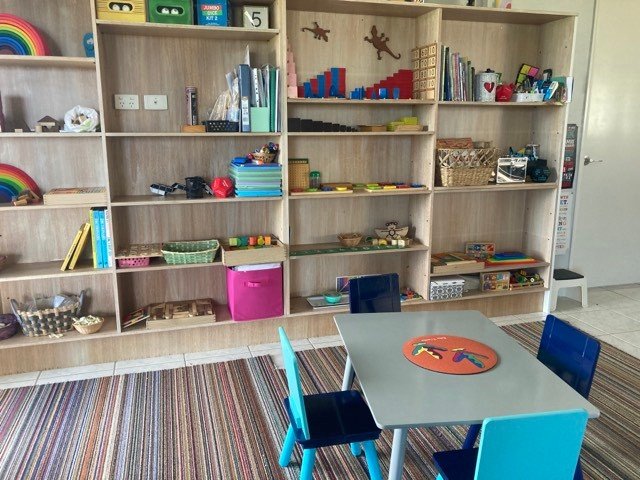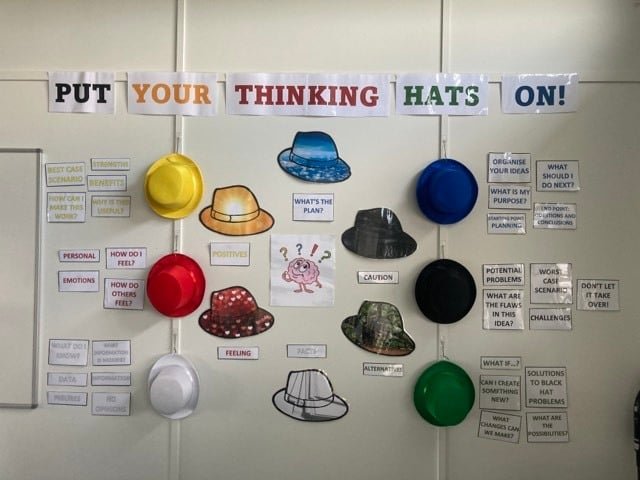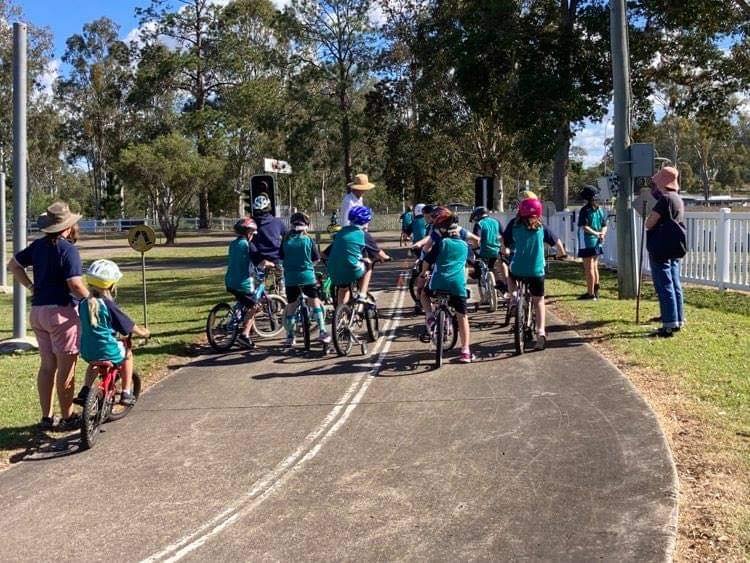Teaching and Learning at Mawarra
Education for the ‘whole child’
One of the fundamental principles of the school, is the focus on educating the ‘whole child’. Academics are important, however so are qualities such as empathy, kindness, tolerance, resilience, respect and responsibility. These qualities are modelled by all adults within the school, and they form the basis of our daily interactions with each other and with the wider community.
Creativity and innovation
Students are encouraged to ‘think outside the box’ with their learning - De Bono’s Six Thinking Hats are used to teach students how to separate thinking into six clear functions and roles. Each thinking role is identified with a coloured symbolic “thinking hat.” By mentally wearing and switching “hats,” students can easily focus or redirect their thoughts, the conversation, or a meeting. This opens them up to other ways of thinking which often differ from their natural way of thinking.
Each year students in middle and high school classes participate in the OptiMinds Creative Sustainability Challenge - an inclusive team challenge which EMPOWERS participants to THINK, CREATE & COMMUNICATE. They are required to solve demanding, open-ended Challenges from one of the following categories: | Language Literature | Media Communication | Science Engineering | Social Sciences |. The Opti-MINDS process mirrors what successful businesses practise.
Child-centred
We offer a child centred, integrated curriculum recognising children's varied abilities, interests and needs, focusing on nurturing and supporting the growth of the child on their learning journey. We recognise that highly-effective teachers use children’s natural curiosity as the spark to plan and implement engaging learning opportunities. Our students’ interests, ideas and questions will guide the development of a balanced curriculum, that values structured learning, explicit teaching, and planned, purposeful play.
Multi-age classes
Learning together, sharing experiences and life lessons
Our multi-age approach encourages and empowers children to become independent learners with wider social experience whilst also working in groups and being challenged according to their ability rather than their age. A multi-age setting is also more akin to real life situations.
Multi-age classes are not composite classes. Multi-age classes are composed of children with a mix of abilities and ages. Children are not grouped based solely on academic performance or age. Multi-age classrooms reflect the natural groupings found in our neighbourhoods and communities and provide opportunities for the exchange of ideas, modelling of behaviours, practice of responsibility and nurturance, and development of leadership and social skills.
Our class sizes are kept small to allow individuals to grow confidently whilst interacting with their peers.
Inquiry based learning
A key focus of our curriculum design at Mawarra is to create a love of learning through varied and stimulating learning experiences. These experiences should interest and engage students, helping them to relate new content to previous knowledge and make connections between school experience and the real world.
An explicit expectation is that successful inquiry will lead to action, initiated by the student as a result of the learning process. This action may extend the student’s own learning, or it may have a wider social impact, and will clearly look different within each age range; and from one age range to the next.
Underpinning all aspects of our curriculum is the school's commitment to the skills of literacy, numeracy and social cooperation and towards the integration of knowledge, skills and values across all learning areas. Whilst we do explicitly teach core subjects of English and Mathematics, we endeavour to provide integrated units rather than focusing on stand alone subject areas. We believe it is this philosophy that assists the children at Mawarra on the path to becoming capable lifelong learners.
Personal Interest Projects (PIPs) and Learning Pathways offer students in Years 3-10 the opportunity to lead their own learning journey focusing on their own interests and building their confidence and love of learning. Students choose an area they’d like to learn about and generate a product or solution to showcase to an audience of their choice.
Outdoor learning and play
At Mawarra we have a focus on being outdoors and participating in the natural environment. Outdoor learning environments are important for encouraging healthy behaviours and improving the physical, educational and mental wellbeing of children and young people. They also connect children and young people to the natural world creating a sense of responsibility for the environment.
Students at Mawarra sometimes engage in activities often deemed ‘risky’ - they learn to assess risks and become more confident and sensible community members. Risk assessments are completed by staff on all activities prior to commencement. This may include climbing trees, riding bikes, using hand tools and racing billy carts down the hill.
Skills for life
We believe in teaching life skills to all children including responsibility, self-care, cleaning, cooking and budgeting to name a few. As such All students of the school are expected to be involved in daily routines and activities around the School, such as: maintaining the vegetable garden, using vacuum cleaners etc. Students are also encouraged to make community connections and foster relationships with external organisations to further build skills for the real world.
Roadcraft road safety
Baking bread












